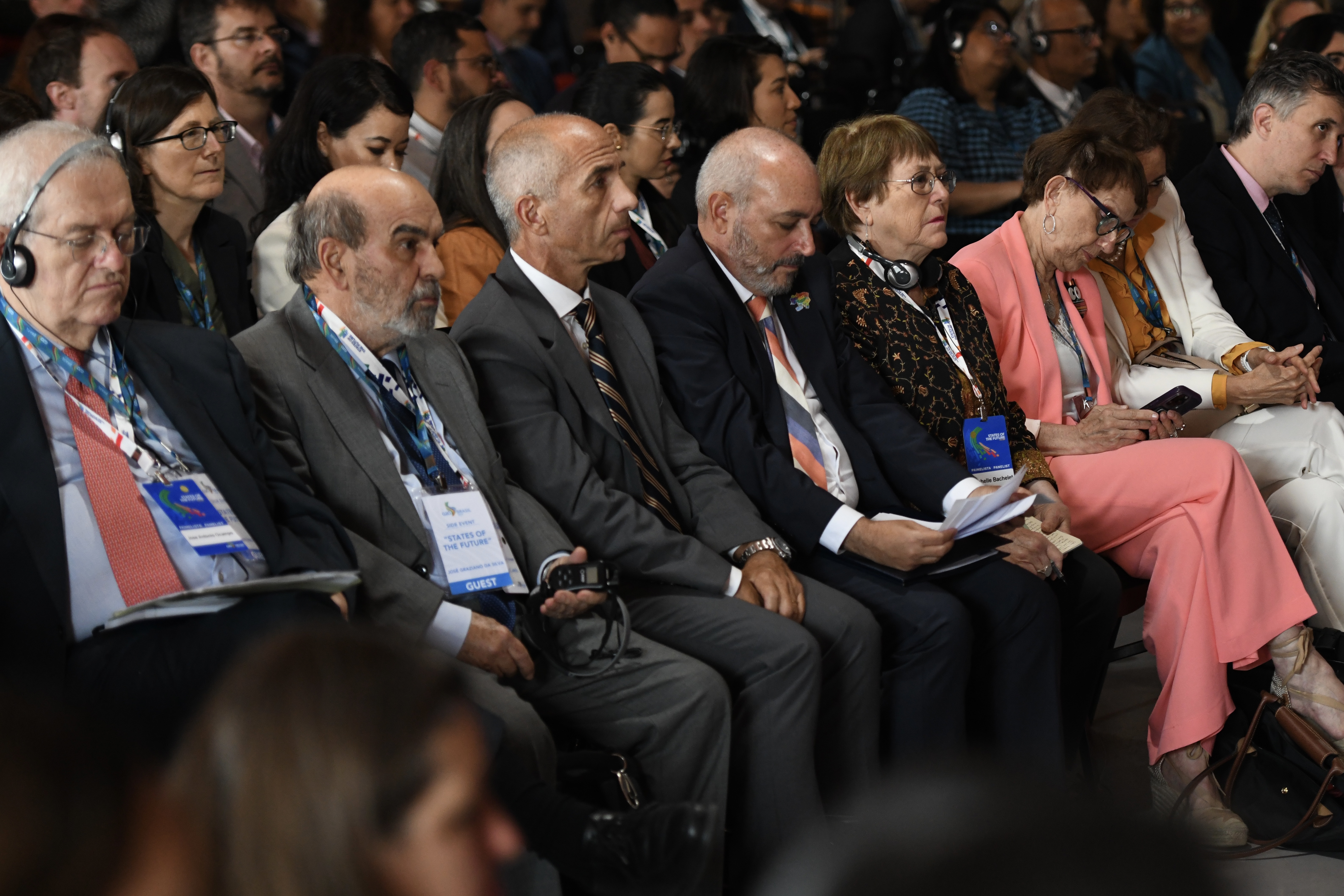States of the Future: Global experts convene in Rio to debate public policies and human rights
At the States of the Future event, held concurrently with the G20, experts called for integrated public policies and effective affirmative actions to promote sustainable development. They analyzed the roles of the state, social protection, and global governance in achieving these goals.

The question, "What kind of state do people want for the future?" prompted the launch of the “States of the Future” event, organized by Brasil’s Ministry of Management and Innovation in Public Services (Ministério da Gestão e da Inovação em Serviços Públicos/MGI). The panels are featured on the official G20 Development Working Group agenda, with the ministerial meeting occurring this week in Rio de Janeiro under Brasil’s presidency.
The activities, taking place through Friday (26) at Galpão da Cidadania, bring together international experts, governments, civil society, academia, and the private sector, along with delegates from member countries and representatives from nine invited countries. They explore the global political capacity for transformation in response to 21st-century challenges. In her opening remarks, Brazilian MGI Minister Esther Dweck highlighted that “States of the Future” aims to leverage the G20’s unique context to build a broader coalition of government officials, academic institutions, civil society, and international organizations.
The minister highlighted the importance of reassessing and strengthening the role of the state in development by drawing lessons from global history. She noted the increasing recognition of the state’s crucial role in addressing contemporary challenges. She emphasized the need to enhance state capabilities and international political dialogue, particularly within the G20. “In this context, we focus on topics such as social protection, with additional discussions planned on global governance and economic issues. Ultimately, we will spend two days engaging with civil society to enhance our listening and interaction, as civil society has much to contribute,” the minister remarked.
“We are at a pivotal moment where we are reevaluating the role of the state. Following the 2008 crisis and the COVID-19 pandemic, people increasingly relied on the state to address issues. However, many states were ill-equipped to provide solutions because their capabilities had been eroded. Therefore, we are rethinking the role of the state within the context of the 21st century”, observed Dweck.

Fighting hunger: global priority
Minister Esther Dweck presented the United Nations Development Programme’s (UNDP) Signals Spotlight 2024 report at the session's opening. This global report highlights humanity's major challenges and demonstrates how good governance practices, leveraging artificial intelligence and new technologies, can serve as opportunities for advancing global social development.
Continuing the focus on combating hunger, a central theme across all panels, José Graziano da Silva, director of the Zero Hunger Institute (Instituto Fome Zero), advocated for government policies to reduce poverty and address climate change. He emphasized that with adequate political commitment, eradicating hunger by 2030 remains achievable despite global setbacks since the pandemic. Graziano highlighted Brazilian initiatives, such as the Bolsa Família program, as exemplary models and stressed the need for improved global coordination in food security. He also mentioned the Global Alliance against Hunger and Poverty, led by Brasil, which will be endorsed by member countries this Wednesday (24) with President Lula’s participation.
“In fact, there has been a regression in the fight against hunger in many parts of the world since the pandemic, and recovery has yet to be realized. We are talking about feeding people, something we already know how to do. President Lula understands that we have the means to end hunger globally, and Brasil can make a significant contribution. Therefore, the alliance comes at a crucial time”, concluded Graziano.